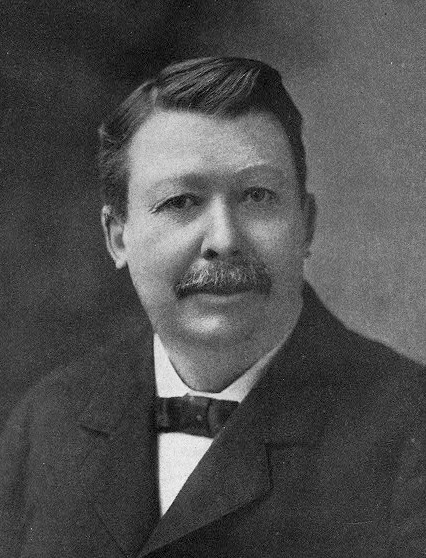
Joel Chandler Harris
Joel Chandler Harris (December 9, 1848 – July 3, 1908) was an American journalist and folklorist best known for his collection of Uncle Remus stories. Born in Eatonton, Georgia, where he served as an apprentice on a plantation during his teenage years, Harris spent most of his adult life in Atlanta working as an associate editor at The Atlanta Constitution.
Joel Chandler Harris
December 9, 1848
Eatonton, Georgia, U.S.
July 3, 1908 (aged 59)
Atlanta, Georgia, U.S.
- Journalist
- fiction writer
- folklorist
Uncle Remus stories
9
Julia Collier Harris (daughter-in-law)
Harris led two professional lives: as the editor and journalist known as Joe Harris, he supported a vision of the New South with the editor Henry W. Grady (1880–1889), which stressed regional and racial reconciliation after the Reconstruction era; as Joel Chandler Harris, fiction writer and folklorist, he wrote many 'Brer Rabbit' stories from the African-American oral tradition.
Life[edit]
Education: 1848–1862[edit]
Joel Chandler Harris was born in Eatonton, Georgia, in 1848 to Mary Ann Harris, an Irish immigrant. His father, whose identity remains unknown, abandoned Mary Ann shortly after Harris' birth. The parents had never married; the boy was named Joel after his mother's attending physician, Dr. Joel Branham. Chandler was the name of his mother's uncle.[1] Harris remained self-conscious of his illegitimate birth throughout his life.[2]
A prominent physician, Dr. Andrew Reid, gave the Harris family a small cottage to use behind his mansion. Mary Harris worked as a seamstress and helped neighbors with their gardening to support herself and her son. She was an avid reader and instilled in her son a love of language: "My desire to write—to give expression to my thoughts—grew out of hearing my mother read The Vicar of Wakefield."[3]
Dr. Reid also paid for Harris' school tuition for several years. In 1856, Joe Harris briefly attended Kate Davidson's School for Boys and Girls, but transferred to Eatonton School for Boys later that year. He had an undistinguished academic record and a habit of truancy. Harris excelled in reading and writing, but was mostly known for his pranks, mischief, and sense of humor. Practical jokes helped Harris cloak his shyness and insecurities about his red hair, Irish ancestry, and illegitimacy, leading to both trouble and a reputation as a leader among the older boys.[4]
Turnwold Plantation: 1862–1866[edit]
At the age of 14, Harris quit school to work. In March 1862, Joseph Addison Turner, owner of Turnwold Plantation nine miles east of Eatonton, hired Harris to work as a printer's devil for his newspaper The Countryman.[5] Harris worked for clothing, room, and board. The newspaper reached subscribers throughout the Confederacy during the Civil War; it was considered one of the larger newspapers in the South, with a circulation of about 2,000. Harris learned to set type for the paper, and Turner allowed him to publish his own poems, book reviews, and humorous paragraphs.
Turner's instruction and technical expertise exerted a profound influence on Harris. During his four-year tenure at Turnwold Plantation, Joel Harris consumed the literature in Turner's library. He had access to Chaucer, Dickens, Sir Thomas Browne, Arabian Nights, Shakespeare, Milton, Swift, Thackeray, and Edgar Allan Poe. Turner, a fiercely independent Southern loyalist and eccentric intellectual, emphasized the work of southern writers, yet stressed that Harris read widely. In The Countryman Turner insisted that Harris not shy away from including humor in his journalism.[4]
While at Turnwold Plantation, Harris spent hundreds of hours in the slave quarters during time off. He was less self-conscious there and felt his humble background as an illegitimate, red-headed son of an Irish immigrant helped foster an intimate connection with the slaves. He absorbed the stories, language, and inflections of people like Uncle George Terrell, Old Harbert, and Aunt Crissy.[6] The African-American animal tales they shared later became the foundation and inspiration for Harris's Uncle Remus tales. George Terrell and Old Harbert in particular became models for Uncle Remus, as well as role models for Harris.